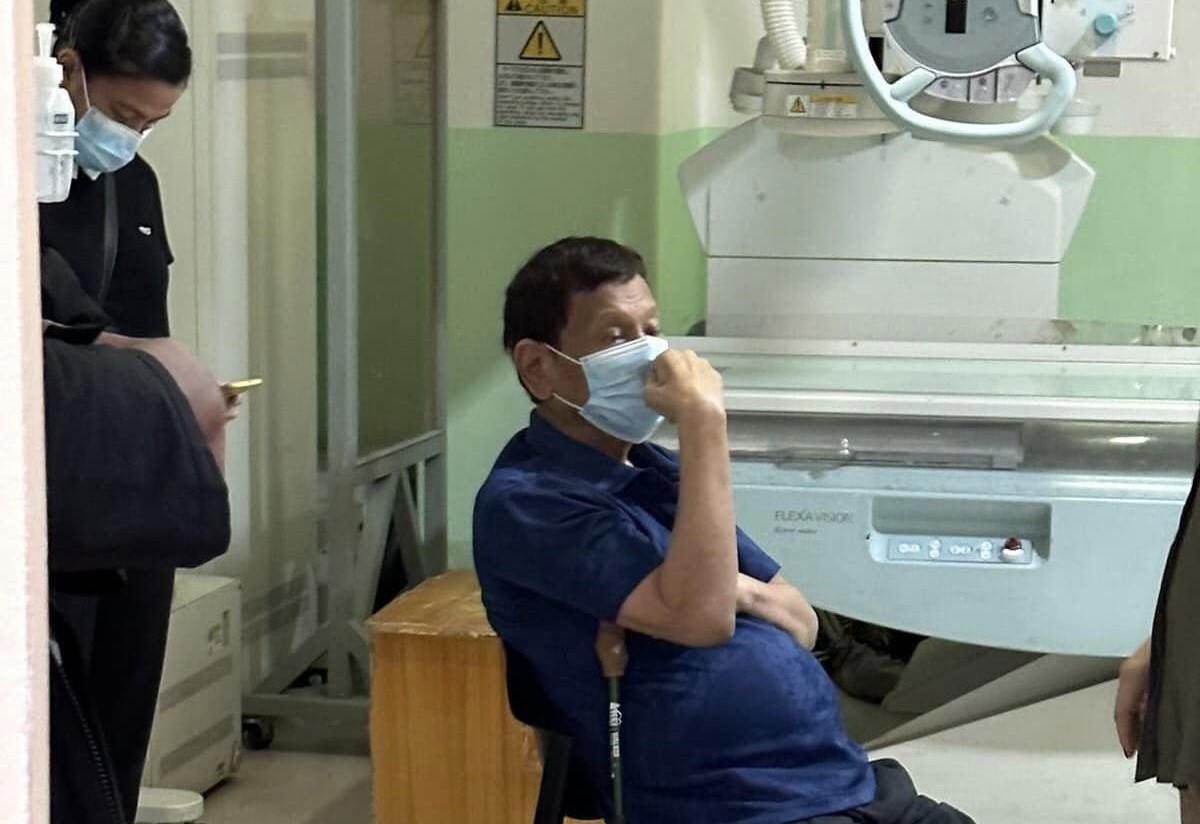In a historic deliberation, the Senate approved Senate Resolution No. 144 , which seeks to request the International Criminal Court (ICC) to place former President Rodrigo Duterte under house arrest for humanitarian considerations. The resolution was based on Duterte’s age—80 years old—and his deteriorating health, which has been the focus of in-depth discussions in the Senate.
The resolution is intended to reflect the Senate’s view that, even though the former president is facing a case, he deserves humane treatment during the legal process. It noted that this does not mean an absolution or the end of the case, but rather a call for humanitarian treatment for an elderly and sick Filipino.
Presentation of Supporting Senators

Many senators expressed their support, focusing primarily on humanitarian grounds and not politics. One of those who gave a long and emotional statement was Senator Alan Peter Cayetano , who spoke as minority leader. He explained his personal experience and perspective as a Christian and a Filipino. He mentioned memories of Duterte’s leadership in Davao City, and how the former president faced crimes during his term as mayor, and later as president.
Cayetano explained that the resolution is not against human rights activists, but rather a call for humane treatment . He cited former presidents who were granted special conditions under house arrest, such as Joseph Estrada and Gloria Macapagal-Arroyo, as examples of the humanitarian consideration that should be respected for the elderly and the sick. He concluded his speech by calling on the Senate and Malacañang to prioritize humanitarian considerations over politics.
Following him, Senator Raffy Tulfo and other senators like Robin Padilla, Christopher Bong Go, Jinggoy Estrada, and Rodante Marcoleta expressed their support, emphasizing the former president’s age and health, and the need for his family and allies to take care of him. Padilla also mentioned that Duterte is in a small cell at the ICC detention facility, with almost no opportunity to communicate with others or go out, and that it is difficult for an elderly person to remain in such conditions.
Many of those who supported the resolution cited the principle of human dignity , which states that even those accused of the most serious crimes should be treated with compassion. They said the resolution did not prevent the ICC from carrying out its legal process, but rather called for Duterte to be placed under house arrest pending his trial.
Opposing Parties

Senators who opposed the resolution were also not without voice. One of their main arguments was equality before the law and the need to respect the victims of the so-called war on drugs. They noted that, while humanitarian considerations are valid, granting the former president special privileges may seem like a move, especially in the face of thousands of victims awaiting justice.
Opponents point out that the ICC has the ability to assess the condition of the accused, and generally pays attention to medical needs even in detention facilities. They point to examples of former world leaders who faced high-profile cases but were not granted house arrest due to the gravity of their crimes , such as Laurent Gbagbo of Côte d’Ivoire and Radovan Karadžić of Bosnia-Herzegovina.
According to them, the resolution may send the wrong message to the public that the law can only be applied to those in power, while the average Filipino will not get the same consideration under the law.
Verification on Humanitarian Grounds
Despite the objections, many still maintained that the resolution was focused solely on humanitarian grounds , and not on politics or defending Duterte’s controversial actions. Supporters cited the former president’s age and health as a natural need for special consideration. Some recounted their personal experiences with their aging parents to illustrate the importance of caring for the elderly, especially those with disabilities.
Voting and Results
After thorough deliberation, a nominal vote was taken . The result was:
Yes : 15 senators
No : 3 senators
Abstention : 2 senators
With this vote, the Senate officially passed the resolution, which will pave the way for the call for former President Duterte’s house arrest under humanitarian considerations to be forwarded to the ICC.
Conclusion
The passage of Senate Resolution No. 144 illustrates the complexity of politics and human rights in the Philippines . It highlights the tension between humanitarian concerns and the need for justice for victims . While some objected to the resolution on the grounds of accountability and equality before the law, the majority in the Senate maintained that humanitarian considerations for an elderly leader should be taken into account, especially while awaiting the legal process at the ICC.
Ultimately, the resolution does not set a verdict in Duterte’s case, but rather serves as a call to action to show that even the elderly and the sick are worthy of dignity and concern , and that justice can be served with compassion. The Senate, despite the controversies, decided to show unity in the principles of compassion and human dignity as a Filipino nation.